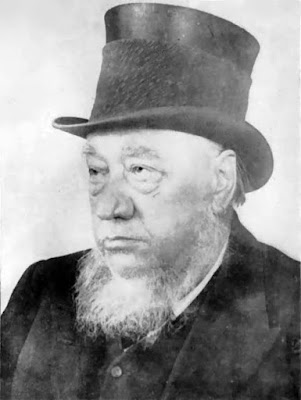This book traces the origin of South Africa and the discovery of gold and diamonds there that sparked off a bloody conflict with Britain that ultimately led to the consolidation and foundation of the apartheid republic that existed until 1994.
This detailed history should be mandatory reading for any budding Africanist. The book also highlights the out-sized role that Cecil Rhodes played in both southern Africa, the diamond industry, and the conflict. The reader also learns the despicable acts that Rhodes committed over the span of his short 49-year life. The main criticism one might find with Meredith's exhaustive history is its decidedly white-western focus. This likely stems from the challenge in finding primary source material which could help better capture more of the African perspective.
*One of my Reading Around the Continent books--the full list is here.
See our 2020, 2019, 2018, 2017, 2016, 2015 and 2014 Reading Lists.
 |
| Kruger |
